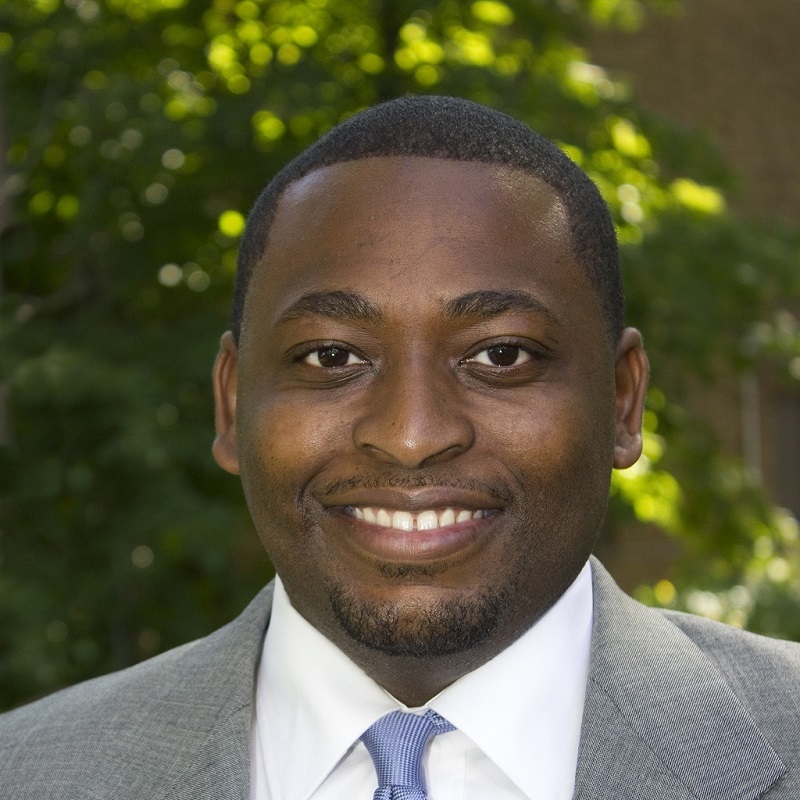Moses Dixon is an advocate, a collaborator, a teacher, and a Christian. He has spent more than a decade of his life dedicated to developing a more in-depth understanding of how to best improve the lives of the impoverished, at-risk, and suffering.

Dixon’s career began soon after he graduated from Howard University with a Bachelor’s in Political Science. He had some experience as a legislative fellow with the United States Senate, where he had worked with the diversity initiative in 2009/2010. This work provided him with hands-on experience with the policy-making process. He worked to promote diversity through recruitment and succession of minority staffers at all levels, and Moses developed excellent networks throughout the senate to that end. During this time, he was also an assistant to then-Senate Majority Leader Harry Reid.
Moses Dixon found that his educational background wasn’t enough for him or his aspirations, and he continued to Clark University, where he pursued a Master’s Degree which would provide him further access and certification. While he worked towards this degree, his governmental career would continue with work alongside Worcester City Councilor Sarai Rivera. He would earn his degree in 2013 and move on from this work position.
For the next year, he would work extensively throughout Massachusetts, with a major portion of his work being with the MA House of Representatives. With representative Mary Keefe, he worked in a more managerial role, supervising staff and interns, as well as managing a large amount of correspondence and day-to-day functions.
In 2015, he turned his sights back towards education, finding his curiosity and passions had re-aligned towards continuing his path towards a doctorate. He began to work as an Adjunct Professor at Becker College, teaching Political Science Topics. As an Adjunct, he had the time and interest in working with Centro, Inc – a social services organization in Worcester, Massachusetts. There he worked closely with the president and CEO to develop and strategize more fruitful relationships with officials and government agencies.
Moses Dixon’s work toward a Ph.D. began in full towards the end of this period when he entered a program with the State University of New York at Binghamton. His doctoral program allowed him to further develop an understanding of the interdisciplinary nature of community development. His thesis emphasized this, looking at the economic and social impact of college closure on a community. He has taught as a graduate student, earning respect and knowledge as he educated on topics such as Human Rights Theory and minority-serving institutions in higher education. With his doctorate, he expects to continue in his career with a greater understanding of the work he does, and more foresight in how to best make use of his resources.
Moses Dixon on How Community Development is Community Health
Community development is often considered in simple terms of how it builds better conditions for communities, allowing for more comfort in our homes. But many are now seeing that community development is essential to building better community health – both physically and mentally
Public Transport Promotes Walking
Counter to what you might assume, public transport has proven benefits for physical health. In 2007 Charlotte, NC finished construction on a light rail system. With close monitoring of BMI and obesity rates before and after, it was shown that the likelihood of developing obesity fell, as did the chances of becoming obese over time. A likely cause of this improvement is that even the short trip to a bus stop or train station can be more physical movement than the average person gets. This simple improvement in community infrastructure and accessibility was accompanied by an improvement in general community health.
Reducing Parental Incarceration Improves Youth Outcomes
Single-parent homes are often viewed more negatively than two-parent, but often it appears that the reasons for single-parenthood are more critical than the fact itself. If one such parent is incarcerated, this has a very clear and negative impact on child health. The most clearly associated health problems are depressions, PTSD, anxiety, cholesterol, asthma, migraines, HIV/AIDS, and general wellness. By promoting community development focused on ending incarceration, many current health crises would be changed for the better.
Coordinated Case Management and People Without Housing
While the global housing crisis continues to grow, there are many ways to improve the health and outcomes of those without homes. It’s been shown that having well-trained and coordinated case-management experts is invaluable for the homeless population. When compared to standard discharge planning services, coordinated care reduces the number of ER visits over the course of a year by 49 for every 100 homeless adults. This is alongside fewer days in the hospital, and 116 fewer ED visits in general.
Our communities are organisms in and of themselves. It’s been shown time and time again that caring for the disenfranchised or underprivileged is no different for community health than caring for an injured kidney or limb. When one part of a community begins to struggle, it’s our duty to each other to help – and building a better foundation for everyone is the first step.
